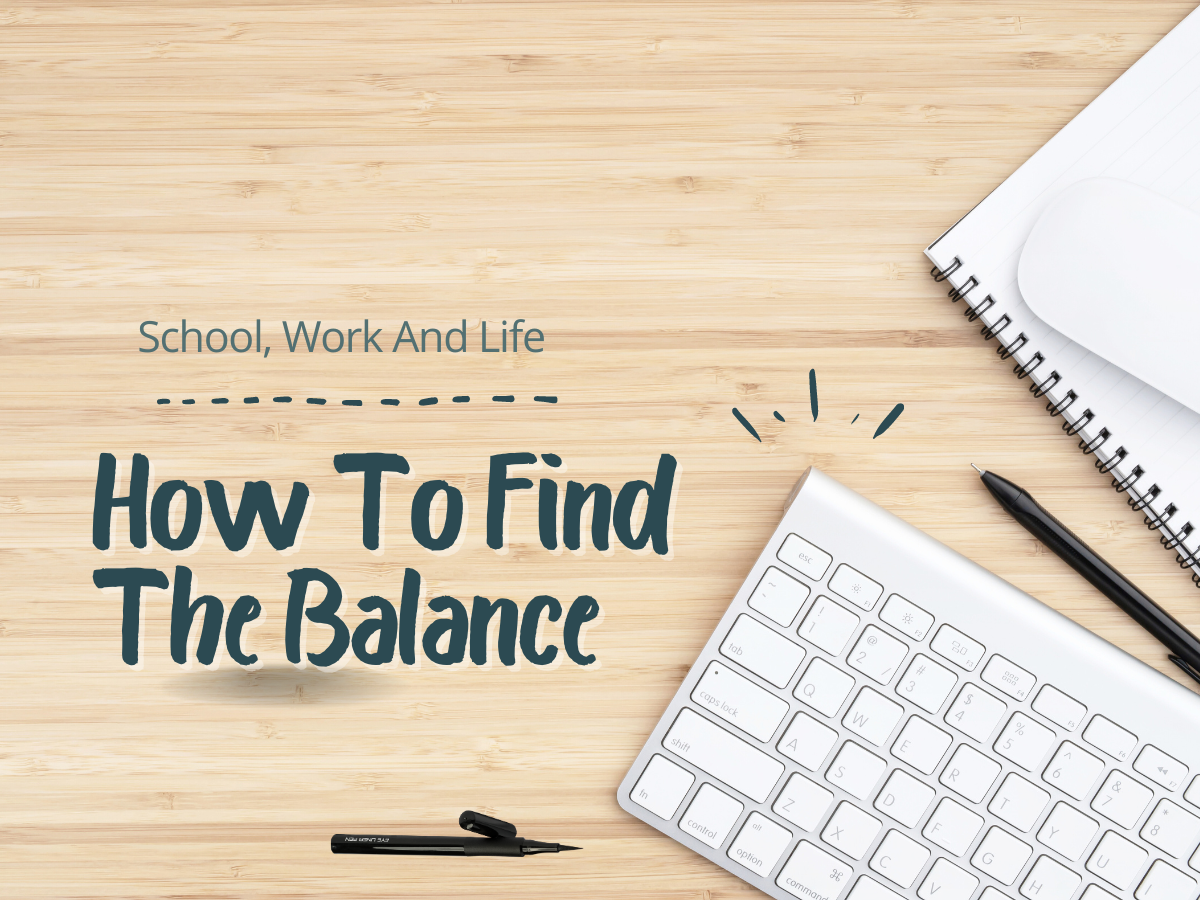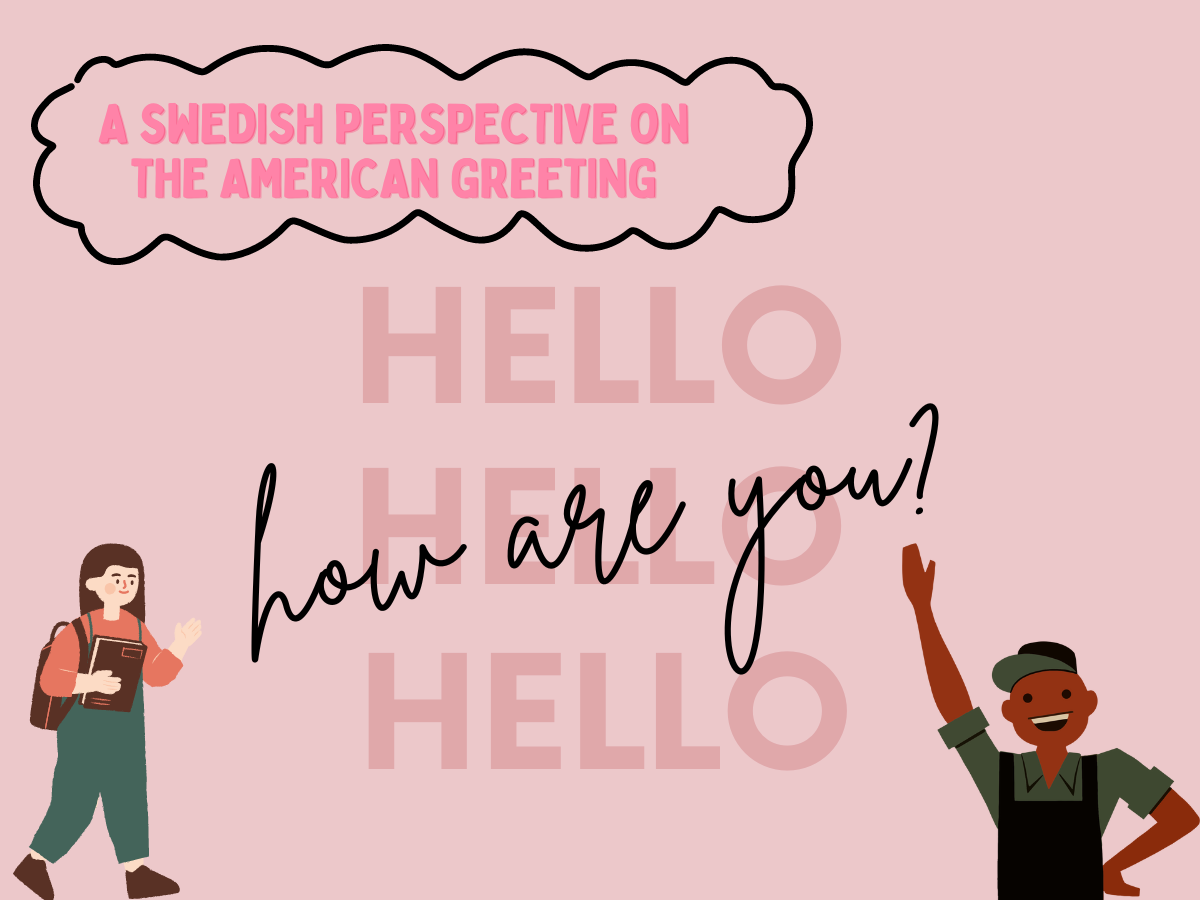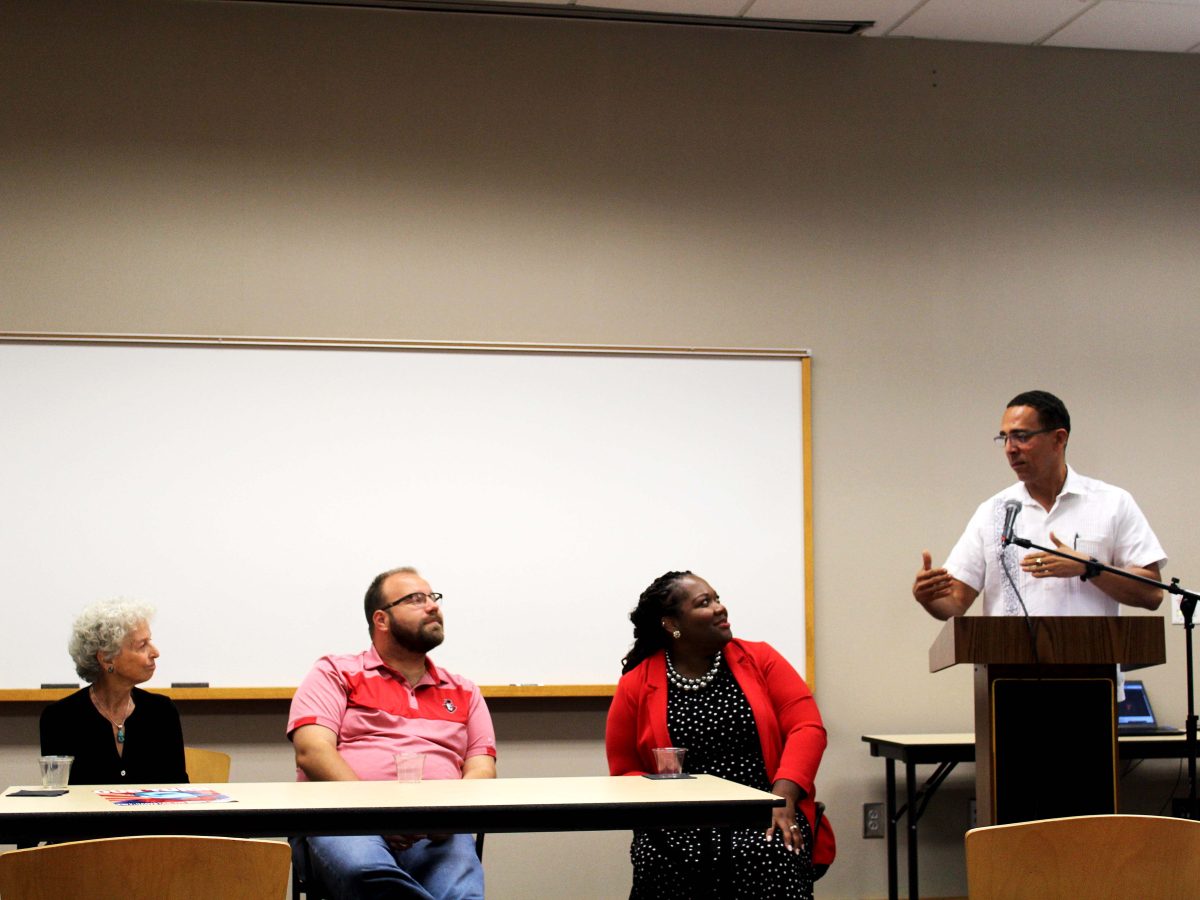My name is Juno. I have worked with The All-State for almost three years. I am one year away from graduating. I began writing before I turned 13. I have three dogs whom I love dearly. My favorite colors are purple and green.
I am also autistic.
A lot of people may not know this, but April is Autism Acceptance Month (more widely known as Autism Awareness Month). The first celebration of Autism Acceptance Month dates back to April of 2011.
According to the official Autism Acceptance Month website, “Autism is a developmental disability that affects how an autistic person thinks, learns, uses their senses, moves their body, communicates and relates to other people. Between 1 and 2% of people in the United States are thought to have an autism-spectrum diagnosis. As we learn more about autism, more people are diagnosed.”
Autism was not recognized as existing on a spectrum until 2013. Our current edition of the Diagnostic and Statistical Manual of Mental Disorders, otherwise known as the DSM-5, groups less severe variations of autism such as Asperger’s syndrome and pervasive developmental disorder not otherwise specified (PDD-NOS) into a single diagnosis of autism spectrum disorder (ASD).
Autism is more than just being socially awkward or an ingenious savant. Symptoms that vary on the autism spectrum include impairment in communication, executive dysfunction, difficulty deciphering body language and other social cues, difficulty organizing and focusing, a desire for routine (coinciding with an intense upset towards change of any kind), sensory processing issues and self-stimulating behavior known as “stimming.”
Those on the autism spectrum frequently have comorbid (meaning co-occurring) conditions. Many ASD symptoms overlap with symptoms ADHD and OCD, and while there is a difference between autism and the two aforementioned disorders, it is not uncommon for autistic people’s diagnoses to overlap. Autistic people are also frequently diagnosed with learning or intellectual disabilities.
Outside of neurological development, people on the spectrum are often statistically inclined to experience chronic physical and psychological health problems. Those on the spectrum are very likely to develop anxiety disorders, depression, epilepsy, gastrointestinal problems and sleep disorders.
April used to be called Autism Awareness Month, but the autism community strives for acceptance above awareness. Allow me to give you a bit of a perspective as to why.
I was diagnosed when I was four-years-old. I was initially diagnosed as intellectually disabled because I bombed the IQ test. What that doctor (bless his heart) did not know was that I purposefully failed the test because I was bored.
My parents were able to see through a window as I was being tested, and they could just see that twinkle in my eye as I decided to screw stuff up for fun. When the doctor essentially described me as “mentally retarded,” my parents did not immediately howl in sorrow. They laughed. Mom told him about how I knew the full alphabet before I was two-years-old, and how I memorized the media I watched to the point of always knowing what VHS tape my parents would play.
Then, it all made sense.
Awareness does not seem like a bad concept. Growing up, I frequently dealt with bullying, authority abuse and neglect from those who either could not understand or refused to do so altogether. From grade school to the halfway point of my Junior Year, I remembered teachers and principals being well-aware of bullying I experienced—but they did next to nothing.
I remember being yelled at in front of other kids by teachers or faculty, wishing I would shrink and disappear. I remember shutting down due to numerous people talking at once, which only encouraged their frustration to the point of calling me “dumb” or other insults. I remember my amazing Kindergarten teacher allowing me a place to hide under her desk when things became overwhelming, but as I got older, teachers lost their patience and basically told me to grow up.
Hearing stories like these is often cause for encouraging awareness. If everyone was more conscious about how an autistic person’s behaviors and functioning differ from that of an allistic person’s, perhaps people would be more empathetic and compassionate towards them.
But here is something to consider: awareness is not the same thing as acceptance.
You can be aware of someone’s condition or disorder as much as possible, but that does not mean you truly accept them. People can be aware of the existence of other minorities such as people of color and LGBTQ+ people, but that does not suddenly erase any racist or queer-antagonistic biases they have internalized. It is no different when it comes to ableism towards autistic people.
From grade school, to my private school, to the start of my experiences on campus, my parents were transparent with school officials about my registered disability. Numerous people over the years were all aware of my autism, but that did not change their treatment of me.
They shifted the blame of the bullies’ actions onto me. They talked over me when I tried to speak for myself. They singled me out for targeted harassment. They ignored repeated instances of bullying from specific individuals. They often ignored my accommodations and they refused to see my need for them as anything more than excuses for laziness and incompetence. They knew I was autistic, and they had no problem gaslighting, belittling and blaming me for others’ poor treatment of me (including their own).
Friends and classmates I knew throughout my academic journey have humiliated me over my “odd” traits. Whenever I stimmed as a child by flapping my hands or arms, I was either laughed at or shouted at to stop, even though I was not doing anything wrong. If I was ever talking to myself (a verbal stim known as echolalia), people would point it out and embarrass me over it. Anytime someone categorized something I did as “weird,” it would make me feel more aware of how I could never be neurotypical like other people my age—more specifically, I would never be “normal.”
Even those who better understood my autism (some of them allistic, some of them also autistic) were not always as understanding as they could have been. I often saw their frustration or waning interest whenever I rambled about a topic I was passionate about. Many times, they have interpreted miscommunications or misinterpreted responses to be inherently antagonistic, and they had no qualms with letting me know on no uncertain terms. This lack of patience succeeded in making me more paranoid and hyperaware of every little transaction as opposed to becoming more mindful of where the miscommunication occurred.
Awareness of one’s marginalized status can often be utilized against them. It can be used to justify or dismiss allegations of abuse. It can be used to bully them into assuming a neurotypical appearance as opposed to encouraging self-acceptance. It is treated by others, including the most well-intended, as something to overcome lest you want to be seen as “different” from the rest.
But as Julia Ormond said in the HBO biopic about autistic animal welfare and livestock expert Temple Grandin, “Different, not less.”
The autism community has encouraged acceptance before Autism Awareness Month was revised to Autism Acceptance Month. In the same vein, they also fought for autism to be recognized as existing on a spectrum, which resulted in the necessary revisions being made in the DSM-5. My community has always been a step ahead on pointing out what autistic people need, and at times, it feels like neurotypicals are catching up with the current era of disability advocacy.
But for those in the back who still do not seem to get it, allow me to spell it out for the rest of the class.
I am not just my autism, but I am not me without my autism. I am not your tragedy or your inspiration porn. I do not want to be cured or erased from existence. I will never accommodate neurotypicals’ ignorance when they will not even try to accommodate me.
I am OK with me.






